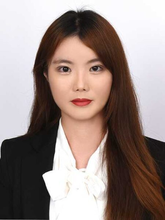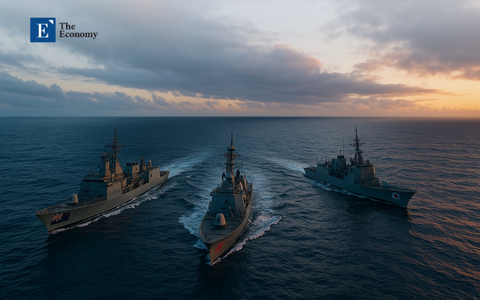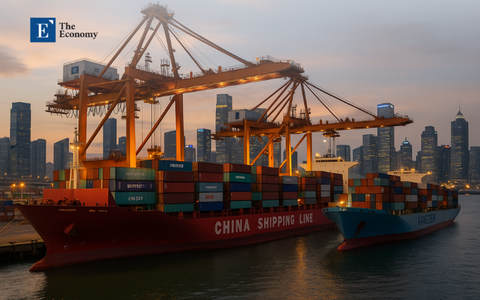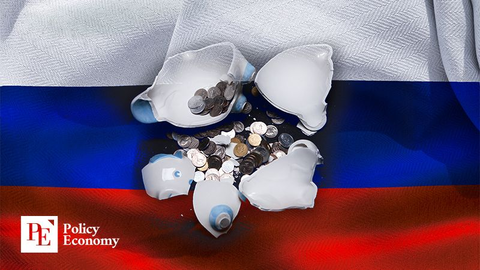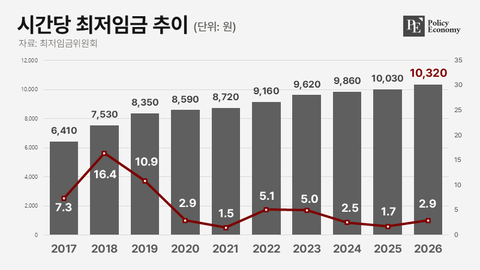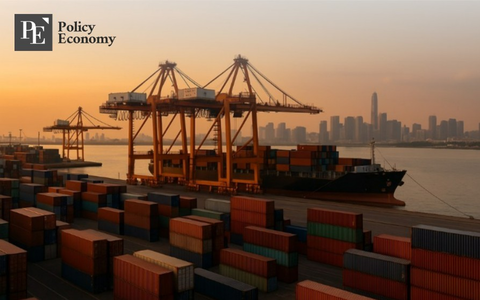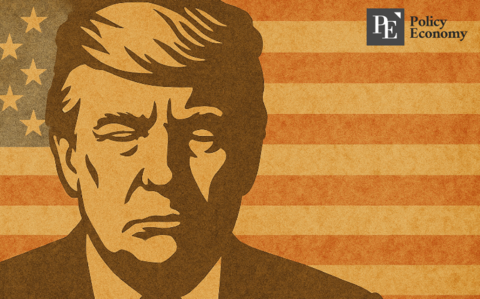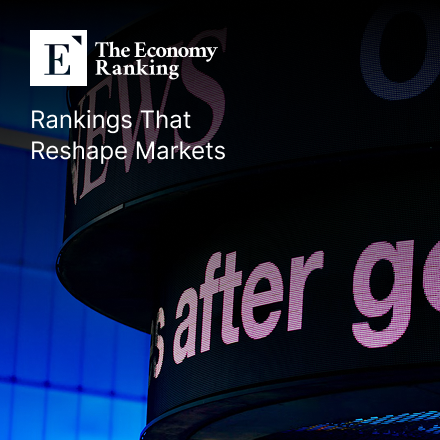입력
수정
[동아시아포럼]은 EAST ASIA FORUM에서 전하는 동아시아 정책 동향을 담았습니다. EAST ASIA FORUM은 오스트레일리아 국립대학교(Australia National University)의 크로퍼드 공공정책 학교(Crawford School of Public Policy) 산하의 공공정책과 관련된 정치, 경제, 비즈니스, 법률, 안보, 국제관계 및 사회에 대한 분석 및 연구를 위한 플랫폼입니다.
저희 폴리시코리아(The Policy Korea)와 영어 원문 공개 조건으로 콘텐츠 제휴가 진행 중입니다.
최근 들어 핵무기에 관한 일본의 딜레마는 더욱 깊어졌다. 일본 주변에는 많은 핵 무장국이 존재하지만, 일본은 자체 핵 억지력을 키우는 대신 미국의 힘에 의존하고 있다. 이러한 상황에서 1945년 핵 공격을 받았던 지역이자 기시다 후미오 현 일본 총리의 선거구이기도 한 히로시마에서 2023 G7 정상회의가 개최되자 일본의 태도에 국제적인 이목이 쏠렸다.

이 딜레마는 수십 년 동안 지속돼 왔다. 1967년 일본 국회에서는 핵무기를 보유, 제조, 도입하지 않겠다고 선언하는 비핵 3원칙이 채택된 바 있다. 사토 에이사쿠 당시 일본 총리가 1968년 제시한 핵 정책의 4대 기둥(Four Pillars of Nuclear Policy)에는 이 목표뿐 아니라 세계적인 핵 군축과 핵에너지의 평화적 사용 및 미국의 확장 억제에 대한 지속적인 의존을 위해 노력하겠다는 내용이 담겼다.
일본은 1976년 핵확산금지조약(NPT, Nuclear Non Proliferation Treaty)을, 1997년에는 포괄적 핵실험금지조약(CTBT, Comprehensive Nuclear Test Ban Treaty)을 비준했다. 아울러 군축 활동을 지지하는 결의안 초안을 유엔 총회에 꾸준히 제출했고 비확산 및 군축 이니셔티브 등의 프로그램에 참여하기도 했다.
하지만 내부적으로는 논쟁이 끊이지 않았다. 전직 방위대신과 방위부대신, 저명한 야당 지도층 인사 등 몇몇 고위 정치인들은 특히 중국에 대한 일본의 핵 억지력 부족에 우려를 표명했다. 고이즈미 준이치로 내각에서 일본 정부 대변인을 맡았던 후쿠다 야스오 전 관방장관은 전술 핵무기 보유가 일본 헌법에 어긋나지 않는다면서 비핵 3원칙 개정 “가능성이 있다”라는 발언을 해 큰 논란을 불러오기도 했다.
사실상의 핵보유국인 북한 역시 위험 요소다. 2006년 북한의 1차 핵실험 이후 자민당 정책연구회 의장 나카가와 쇼이치는 핵무기 보유에 대한 공개 논의를 제안했다. 2017년에는 이시바 시게루 전 방위대신이 일본 영토에 미국의 핵무기를 배치하자고 주장하기도 했다.
일본은 기술력이 충분한데도 미국의 핵우산에 의존하며 핵 보유를 꺼려 왔다. 그러나 일본의 안보 딜레마는 최근 들어 정치권과 일반 대중이 이웃한 핵보유국들의 위협 수위가 높아졌다고 판단함에 따라 더욱 깊어졌는데, 예컨대 북한은 언론을 통해 일본을 직접 위협하면서 일본 근처에서 반복적인 핵 및 미사일 실험을 이어가고 있다.
블라디미르 푸틴 대통령이 장기 집권 중인 러시아 역시 공격적인 핵 수사라는 측면에서 북한과 유사한데, 이들은 북방 지역에서 일본과의 평화 조약 협상을 중단했다. 중국의 무한 '푸틴 사랑'과 소위 '전랑 외교(늑대전사 외교, 중국 외교관들이 보이는 강경한 발언과 태도)'도 문제다. 중국이 동중국해와 남중국해에서 벌이는 군사 활동과 일본의 배타적 경제 수역에 대한 탄도 미사일 발사는 양국의 긴장을 고조시켰다. 한편 중국은 2035년까지 핵탄두 수를 현재의 약 400개에서 1,500개로 늘리는 등 핵무기 확장에 박차를 가하고 있다.
푸틴 대통령은 러시아-우크라이나 전쟁에서 핵무기를 사용할 가능성을 언급한 바 있다. 이에 시진핑 중국 국가주석은 "국제사회가 핵무기 사용 혹은 사용 위협에 공동으로 반대해야 한다"고 목소리를 높였다. 이 발언은 일본 내에서도 화제가 됐고, 아베 신조 전 일본 총리는 미국과의 핵 공유 논의 필요성을 제시했다. 단 기시다 총리와 기시 노부오 전 방위대신은 “비핵 3원칙 유지라는 일본의 입장을 고려할 때 그러한 합의는 수용할 수 없다”고 선을 그었다.
아직까지 일본 정부의 NPT 준수 의지는 확고하다. 일부 안보 분석가들은 일본이 러시아, 중국, 북한처럼 자체적인 핵 보유 방안을 모색하리라 예측했지만, 일본에는 아직 다른 선택지가 많이 남아 있다.
냉전 초 일본은 세계 경제 통합을 옹호하며 안정성 유지와 세계 시장 진출에 집중했다. 즉 일본에는 비핵화 상태를 유지해 경제적 위협을 회피할 인센티브가 있었다. 심지어 일본은 국방비 지출을 GDP의 1%로 제한하기도 했다. 2020년 들어 일본의 최대 수출국은 미국이 아닌 중국이 됐지만, 일본은 여전히 미국의 확장 억제에 의존하고 있다.
일본 여론은 한국과 달리 핵무기 보유에 부정적인데, 2019년 실시된 전국 단위 조사에서는 대상자의 75%가 핵무기 금지 조약 비준을 지지한다고 응답했다.
일본 정부는 대중을 안심시키고자 1945년 이후 최대 규모의 군사력 증강을 시작했다. 일본 헌법 9조에는 여전히 군대 유지권 포기가 명시돼 있지만, 일본 국회는 2015년 동맹국 방어를 위한 일본군 해외 배치를 허용했다. 앞서 언급했던 국방비 상한선은 2017년에 무너졌으며, 지난해에는 기시다 총리가 이 비율을 2%로 높여 전 세계에서 세 번째로 큰 국방예산 규모를 달성하겠다고 밝히기도 했다. 호주와 영국과는 새로운 방위 협정을 체결했으며 합동 군사 훈련의 빈도수도 늘어났다.
일본은 이번 히로시마 G7 정상회의에 각별한 노력을 기울였는데, 특히 포괄적이고 진보적인 태평양 횡단 파트너십(Comprehensive and Progressive Trans Pacific Partnership)을 지지했던 것처럼 다른 영역에서의 리더십도 추구하려는 움직임을 보였다. 지난해 기시다 총리는 핵무기 없는 세계를 위한 저명인사 모임(Group of Eminent Persons for a World without Nuclear Weapons)을 만들었고, 일본 총리로는 최초로 NPT 재검토 회의에 참석해 반핵 ‘히로시마 행동 계획’을 발표했다.
시진핑 주석이 3일 동안 모스크바를 방문해 푸틴 대통령을 만난 2023년 초 기시다 총리는 우크라이나 키이우에서 볼로디미르 젤렌스키(Volodymyr Zelensky) 우크라이나 대통령을 G7 정상회의에 초청하며 우크라이나가 겪는 위협과 인도 태평양 지역의 위협이 비슷하다고 언급했다. 정상회의 전날 밤에는 포린 어페어스(Foreign Affairs)에 기시다 총리의 기고문이 실렸다. 해당 기고문에는 ‘자유롭고 개방된 국제질서’를 강화하겠다는 총리의 의지가 명백히 드러났다. 기시다 총리는 2023년 4월 발표된 G7 외교장관 공동성명의 원칙을 다시 한번 언급하며 ‘핵무기 없는 세상’을 강조했다.
기시다 총리는 히로시마 평화 기념 공원에서 G7 정상을 환영하며 정상회의의 막을 올렸다. 핵 개발은 없다는 그의 의지에 아주 적합한 무대를 만든 것이다. 물론 이 회담에서 발표된 ‘핵 군축에 관한 G7 정상들의 히로시마 비전(Hiroshima Vision on Nuclear Disarmament)’이 핵 폐지론 측면에서 완벽하지는 않지만, 적어도 일본에 자체적인 핵 억지력 획득 의사가 없다는 것은 분명하다. 일본은 이번에도 움직이지 않았다.
Japan’s nuclear dilemmas in a challenging new era
The contemporary security context has sharpened Japan’s dilemma regarding nuclear weapons. Japan is surrounded by several nuclear-armed neighbours and depends on US extended deterrence rather than its own nuclear deterrent. An opportunity was embedded in Japan’s role as G7 chair for the 2023 summit in Hiroshima, the site of the 1945 nuclear attack and Prime Minister Fumio Kishida’s electoral constituency.
The dilemma is one Japan has faced for decades. In 1967, then prime minister Eisaku Sato introduced the Three Non-Nuclear Principles, adopted by the Diet, declaring that Japan will not possess, manufacture or introduce nuclear weapons. In 1968, Sato reaffirmed this goal in his Four Pillars of Nuclear Policy, adding commitments to work toward global nuclear disarmament, nuclear energy’s peaceful use and continued reliance on US extended deterrence.
In 1976, Japan ratified the Non-Proliferation Treaty (NPT) and in 1997 the Comprehensive Nuclear Test Ban Treaty. Japan has consistently submitted draft resolutions supporting disarmament activities to the UN General Assembly and participated in programs such as the Non-Proliferation and Disarmament Initiative.
But internal debate has persisted. A series of senior politicians — including a former minister and vice minister of defence, and a prominent opposition leader — have expressed concern about Japan’s lack of its own nuclear deterrent, especially against China. Former chief cabinet secretary Yasuo Fukuda claimed amending the Three Non-Nuclear Principles was ‘likely’ after his deputy declared possessing tactical nuclear weapons would be constitutional.
A nuclear-armed North Korea sparked similar remarks. In 2006, after North Korea’s first nuclear test, the Liberal Democratic Party’s Policy Research Council Chairman Shoichi Nakagawa proposed a public discussion of nuclear weapons acquisition. In 2017, former defence minister Shigeru Ishiba proposed hosting US nuclear weapons on Japanese soil but was dismissed by the defence minister at the time.
Despite its technical capabilities, Japan continued to eschew acquisition, relying instead on the United States’ nuclear umbrella. Japan’s security dilemmas intensified recently, as leaders and the public perceive heightened belligerence from its nuclear-armed neighbours. North Korea’s recurrent nuclear and missile tests of growing sophistication into Japan’s vicinity, along with direct verbal threats, sometimes requires evacuating Japanese civilians.
In his aggressive nuclear rhetoric, President Vladimir Putin’s Russia resembles North Korea and has suspended peace treaty negotiations with Japan over Northern Territories. Japan also perceives China’s ‘no limits’ embrace of Putin and ‘wolf warrior’ diplomacy to have replaced China’s ‘peaceful rise’. China’s East and South China Sea military activities and firing of ballistic missiles into Japan’s exclusive economic zone have escalated tensions. Equally concerning is China’s abandonment of its minimal nuclear deterrent capability of about 400 nuclear warheads, which is estimated to increase to 1500 by 2035.
Putin’s nuclear rhetoric led even Chinese President Xi Jinping to call on the international community to ‘jointly oppose the use of, or threats to use, nuclear weapons’. Russia’s invasion of Ukraine reignited Japan’s concerns, with former prime minister Shinzo Abe encouraging a national discussion on nuclear weapons-sharing arrangements with the United States. But Kishida, along with Defence Minister Nobuo Kishi, expressed that such an arrangement was ‘unacceptable given [Japan]’s stance of maintaining the Three Non-Nuclear Principles’.
The durability of Japan’s commitment to abiding by the NPT raises an important consideration. Some security analysts have predicted Japan would seek its own nuclear deterrent in tandem with three of its neighbours’ nuclearisation. Yet Japan’s decades-old nuclear abstention defies those predictions, which neglected other considerations.
Early in the Cold War, Japan’s commitment to global economic interdependence prioritised stability and global market access. This shaped incentives to remain a non-nuclear weapons state and reduce risks to its economy. Japan also capped defence spending at 1 per cent of GDP. While by 2020 China had surpassed the United States as Japan’s top export market, Japan still relied on US extended deterrence despite its own technological capabilities.
Unlike in South Korea, Japanese public opinion remains opposed to nuclear weapons acquisition. A 2019 national survey found 75 per cent of respondents supported ratifying the Treaty on the Prohibition of Nuclear Weapons.
To reassure the public, Japan’s leaders launched the largest military expansion since 1945. While Article 9 of the Constitution famously renounced the right to maintain military forces, in 2015 the Diet voted to allow Japanese forces to deploy overseas to defend allies. In 2017, the 1 per cent of GDP cap in defence expenditures was superseded, and in 2022 Kishida raised it to 2 per cent by 2027 — on track to become the third-largest defence budget globally. Joint military drills have increased, and Japan has signed new defence agreements with Australia and the United Kingdom.
Japan also planned its G7 chairmanship of the Hiroshima summit carefully. Just as it championed the Comprehensive and Progressive Trans Pacific Partnership, Japan has sought leadership in other realms. In 2022 Kishida established the International Group of Eminent Persons for a World without Nuclear Weapons and became the first Japanese prime minister to attend the NPT review conference, where he presented the anti-nuclear ‘Hiroshima Action Plan’.
In early 2023, as Xi spent three days visiting Putin in Moscow, Kishida visited Kyiv. He invited Ukrainian President Volodymyr Zelensky to attend the G7 summit, concerned with troubling parallels between threats to Ukraine and threats in the Indo-Pacific. Kishida’s article in Foreign Affairs, published on the eve of the summit, expressed his commitment to reinforcing ‘a free and open international order’. Reaffirming the principles of an April 2023 G7 communique, Kishida envisioned ‘a world without nuclear weapons’.
To set the stage, Kishida launched the G7 summit by greeting G7 leaders at the Hiroshima Peace Memorial Park. While the Hiroshima Vision on Nuclear Disarmament disappointed nuclear abolitionists, it also reaffirmed Japan’s longstanding abstention from acquiring its own nuclear deterrent, even at this critical juncture. Japan has stayed its course.
